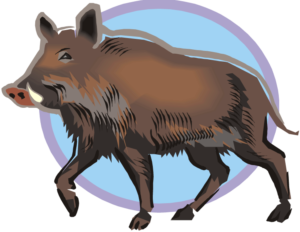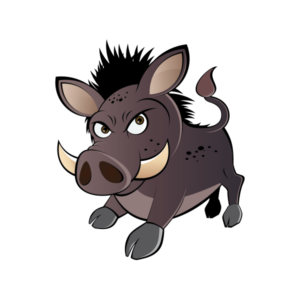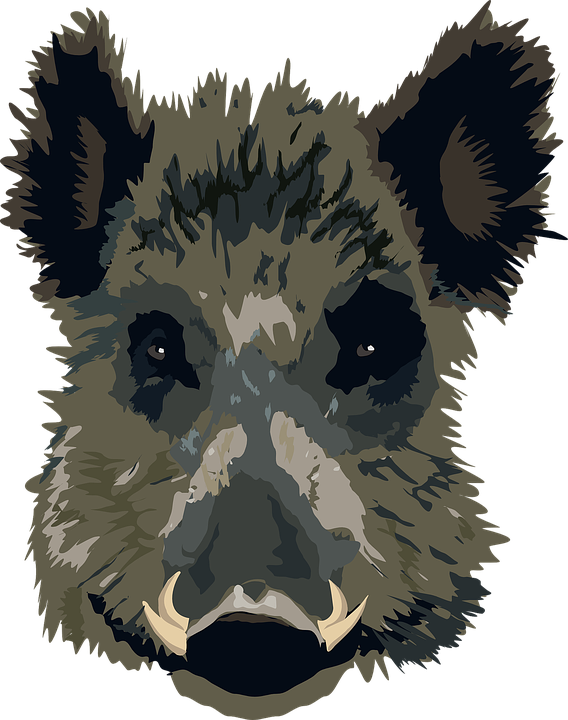Sugar Land Hog Removal Services- Local Wildlife Control Team in Texas
High-Tech Feral Pig Control Solutions
[no_toc]
Hog Removal Service TX
Removal Company
Feral Pig Management Sugar Land
 Are you in need of a professional feral hog removal and wildlife control services? Feral hog and wild animal control in Texas requires extensive planning and research to prevent unwanted consequences from avoiding eradication. The benefits involved with such a feral hog control and wild animal control include stopping land & property damage, harm to livestock, loss of crop production, reduction in food availability. Although this wild animal control practice is not considered to be inherently dangerous, feral pigs do pose a risk to both humans and livestock when not handled properly. This is why proper planning to remove feral hogs and implementation are critical to the success of a management project.
Are you in need of a professional feral hog removal and wildlife control services? Feral hog and wild animal control in Texas requires extensive planning and research to prevent unwanted consequences from avoiding eradication. The benefits involved with such a feral hog control and wild animal control include stopping land & property damage, harm to livestock, loss of crop production, reduction in food availability. Although this wild animal control practice is not considered to be inherently dangerous, feral pigs do pose a risk to both humans and livestock when not handled properly. This is why proper planning to remove feral hogs and implementation are critical to the success of a management project.
Many states, including Texas, have established wild animal control regulations for removing feral hogs and have enacted wild animal control laws that prohibit their possession. Although not all states have these wild animal control laws, many municipalities require that livestock owners to register their animals with local wildlife departments. Wild animal control programs often require that the wild animals be removed within a specified period of time. In some cases, the wild animals may be taken away by trap or by humane feral hogs trapping, but the wild animals may be relocated to another area. Some landowners will allow relocation on their property only, while others require the feral hog trapping and wild animal control services to come onto the property and remove the wild animals from the land.
Feral Hogs
 Sugar Land’s feral hog and wild animal control programs can be very successful in providing the wild animals with a more productive and safe living environment. In the case of feral hogs, a professional wild animal control service can safely and humanely remove the wild animals from residential areas, commercial properties, farms, forests, or other areas without damaging any property, livestock, or the environment. Texas is home to the most prolific population of feral hogs in Texas, with an estimate of about 2.3 million of the estimated annual nationwide population of about 4 million. This large number of feral hogs, which can weigh up to 100 pounds, can become a significant nuisance if not managed properly.
Sugar Land’s feral hog and wild animal control programs can be very successful in providing the wild animals with a more productive and safe living environment. In the case of feral hogs, a professional wild animal control service can safely and humanely remove the wild animals from residential areas, commercial properties, farms, forests, or other areas without damaging any property, livestock, or the environment. Texas is home to the most prolific population of feral hogs in Texas, with an estimate of about 2.3 million of the estimated annual nationwide population of about 4 million. This large number of feral hogs, which can weigh up to 100 pounds, can become a significant nuisance if not managed properly.
Feral hog removal services if a wild animal were to escape from a farm or ranch, it could destroy crops, cause property damage, or even attack people. These wild animals can create potential health hazards and spread disease to livestock and humans as well as cause damage to natural resources. When livestock are injured or killed, the owners may need to obtain animal control and wildlife control services to safely remove the wild animals and prevent further damage to the area.
 Feral hogs removed from a Sugar Land TX community must undergo a thorough inspection prior to traps being set. The reason for this wild animal control inspection is to make sure the wild animals are healthy, free of disease, and free from parasites. Most companies will provide a wild animal control inspection report after the wild animals have been removed. This is done before the feral hogs removed to determine the safety and health of the animals, before removing them to another location, and after the wild animals are removed. If there are any issues with the removal, the company can advise the homeowner on proper care for the wild animals to ensure their health in the new location.
Feral hogs removed from a Sugar Land TX community must undergo a thorough inspection prior to traps being set. The reason for this wild animal control inspection is to make sure the wild animals are healthy, free of disease, and free from parasites. Most companies will provide a wild animal control inspection report after the wild animals have been removed. This is done before the feral hogs removed to determine the safety and health of the animals, before removing them to another location, and after the wild animals are removed. If there are any issues with the removal, the company can advise the homeowner on proper care for the wild animals to ensure their health in the new location.
The reason our feral hog removal and wild animal control system is farmer authorized is because there is never ever a need to fret about wild animals or native wildlife getting caught in our traps. Likewise, we do not just trap one or two feral hogs at a time we capture the entire sounder (herd). Our objective as wild animal control experts and trappers is to eliminate the problem, remove the cost of damages, and enhance the native wildlife, which currently competes for food with these nuisance animals.
After setting up our animal trap, our group of professionals continually views the cam for feral hog activity occurring in real-time. As the hogs go into the trap, we are alerted immediately via transmitted cellular signals. Upon doing recon, we have a pretty great idea of the number of hogs within the group, so we wait till all of the hogs have gotten in the trap prior to making our relocation.
More About Wild feral Hogs
- Likewise described as feral hogs, feral hogs in Texas descended from introductions of European feral hogs for sporting functions, and from gotten away domestic swine that have established feral populations. European wild hogs have a number of identifying characteristics that set them apart from domestic or feral hogs. European wild hogs and feral hogs interbreed easily, with traits of European wild hogs obviously being dominant.
- Feral hogs have established sizeable, free-ranging populations in different put on the Rio Grande and Coastal Plains, in addition to the woody country of eastern Texas.
- Good feral hog environment in timbered areas includes varied forests with some openings. Throughout hot summer months, “wallows,” or depressions dug in the mud by feral hogs, are much in evidence near marshes or standing water, such as along roadside ditches.
- Feral pigs usually reproduce year round; litters range from one to seven, averaging two per plant. Approximately one to 3 nursing pigs normally accompanies brood sows. The heat duration is only about 48 hours in duration and the typical gestation period is 115 days.
Feral hogs are known for their aggressive nature. Boars are usually most aggressive throughout mating seasons and females are aggressive when safeguarding their young. If threatened, feral hogs will charge full speed triggering damage with the effect of their difficult thick skulls. Sows normally have small tusks and therefore charge with an open mouth and bite. Boars typically have large tusks and whip their heads upward on impact causing serious lacerations. A lot of injuries to humans normally happen on the upper leg due to the typical height of most feral hogs. Many attacks are treatable, some casualties have taken place from feral hog attacks.
Feral hogs also spread numerous illness to people and animals and pose a significant risk to livestock. Acknowledged endemic areas of anthrax cases in feral hogs include portions of Texas, Louisiana, California, Arkansas, Mississippi, Nebraska, South Dakota, and little areas in other states. Feral Hogs also harbor parasites such as feral hog lice, ticks, and endoparasites including worms and flukes.
Feral hog removal and feral hog control is a labor-intensive process that requires specific knowledge and experience of animal habits. If you need feral hog removal, feral hog trapping, or long term feral hog control, Wildernex can provide these services to secure you and your property.
CALL NOW!

Bulletproof Management Of Hogs
When it comes to hog removal, there are few solutions that can be considered bulletproof. We understand that for those that have already faced property damages, it’s a very high risk to hire someone that can not guarantee 100% success. Because of this, we have abandoned all traditional trapping methods and changed all protocols to ensure that we are offering a solution with the highest possible catch ratio. The comfort and complete satisfaction of our clients is at the forefront of efforts. Our satisfaction comes from your satisfaction.
Military Grade Technology
We don't set hog traps and hope...
The common hog management approach to controlling feral pigs is typically trapping and / or snaring. The problem here? Hogs are extremely smart and more times than not, they just aren’t willing to enter little hog pen traps. When damage is being done, this is simply not a practical approach to stopping wild hog damage in a timely manner.
We strategically set, aim and fire!
We take hog control to a whole new level with the most technologically advanced, military grade system on the market. This gives us the advantage of utilizing wireless cameras and thermal imaging devices with remotely activated traps, bypassing issues of a single hog setting off traps before others enter or traps just simply not being triggered at all.
HIGH TECH
Feral hog sows produce 1.5 litters per year on average, with six piglets in each, though a single litter may include up to 14 piglets.
Female feral hogs typically reach sexual maturity as young as 3-4 months of age; however, most wild sows reach puberty by the time they are one year old. Females of this species are polyestrous, being able to come into estrus every 18-24 days if they are not successfully bred.
TRAPS SET
PIGS TRAPPED
PROPERTIES
Call us today for “hog removal service Sugar Land”!
